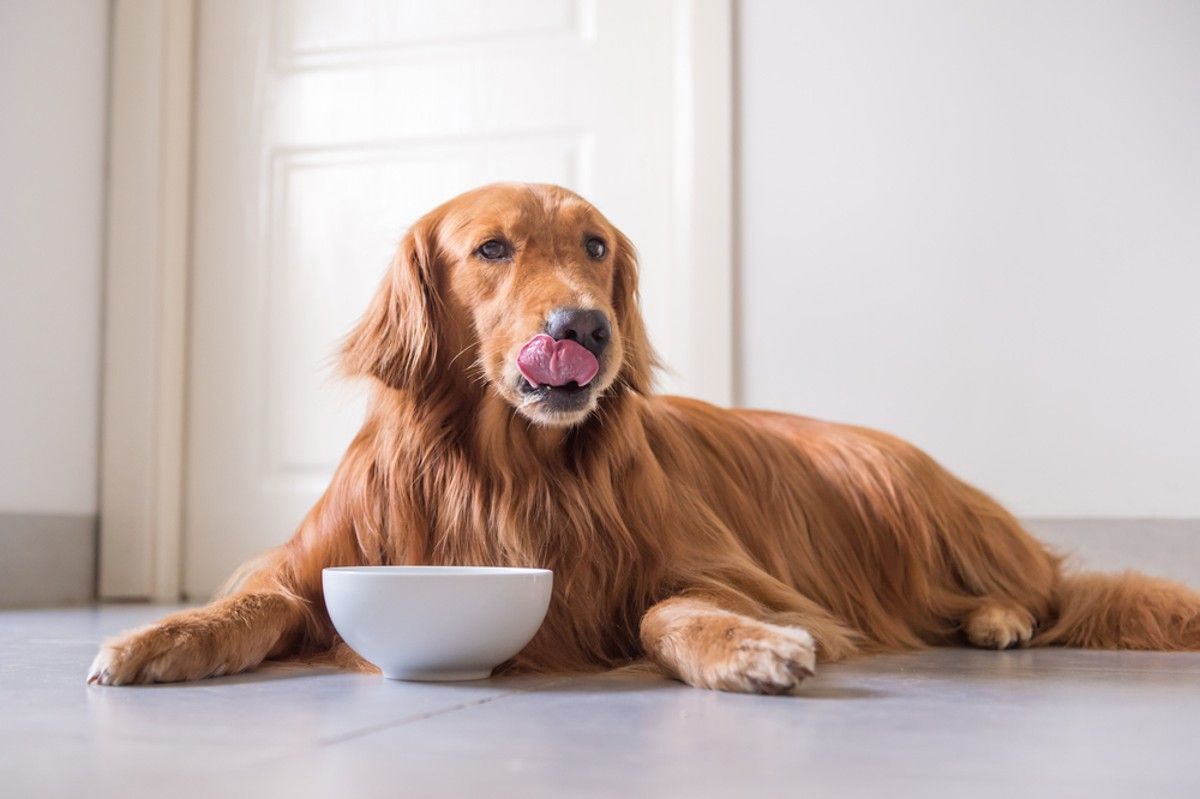What can dogs not eat?
Dogs are omnivores and can eat a mixture of foods, from dog biscuits to raw meat, vegetables to specialist supplements. But there are also lots of things that can be really dangerous for our furry friends, whether they consume a small amount or a large amount. No matter what you feed your dog, from leading brands of dog food to natural raw diets, there are some items you should always keep away from your pet.
Poisoning can cause liver failure or damage the digestive system and symptoms include vomiting, diarrhoea, agitation or lethargy so if you’re concerned your pooch may have accidentally consumed something dangerous, contact your vet as soon as possible.
At Dog Friendly Cottages, we want our four-legged pets to stay safe so they’ve put together this A to Z of what dogs can not eat.
A is for acorns
Acorns are dangerous if ingested by dogs. They contain tannins which can cause stomach upsets and even lead to kidney failure. The hard round nuts can also cause internal obstructions.
B is for bones
Cooked bones can be extremely dangerous for dogs as they can splinter and cause choking or damage to their mouth and intestines.
C is for chocolate
Chocolate includes a bitter alkaloid called theobromine which is very dangerous for our furry friends. People can metabolise theobromine but it takes dogs much longer to process it and it can build up to toxic levels in their system.
D is for dates
Dates can lead to an upset tummy or diarrhoea. They also have a high sugar content which can affect your dog’s blood sugar levels.
E is for eggs
Some people feed their dogs raw eggs as part of a natural, raw diet - but many experts believe they can contain salmonella so it may be best to stay clear.
F is for fungicides
Keep dogs away from areas where fungicides are being used or stored. If they get any on their fur accidentally, thoroughly clean their coat to remove it so they don’t ingest it when they’re cleaning themselves.
G is for grapes
Grapes and raisins can be extremely dangerous for dogs - even if consumed in small doses. They can cause acute or sudden kidney failure although it’s not yet clear what it is in grapes that causes this.
H is for house plants
Common house plants such as poinsettias, ivy, mistletoe, yew, peace lilies, nightshades and rhododendrons can all be potentially poisonous to dogs if eaten.
I is for insecticides
Keep dogs away from areas where insecticides have been used or are being stored. They can contain lots of potentially dangerous chemicals and components.
K is for kerosene
Kerosene and any fuels that may be stored in your shed or garage are extremely dangerous if ingested.
L is for lemons and limes
Dogs don’t like the taste of citrus fruits but they can also contain dangerous compounds and oils.
M is for mould
Never give your dog mouldy scraps of food and always ensure the bin is secure if you have a bin-raider! Moulds contain tremorgenic mycotoxins that can make your dog very ill.
N is for nuts
Not all nuts are bad for dogs but they are all high in fat so this may not be good for dogs on a diet! However, some nuts like macadamia nuts, pecans, pistachios and walnuts are extremely toxic.
O is for onion
Both raw and cooked onion is harmful to dogs, as well as the rest of the allium family. These include garlic, shallots, leeks and chives.
P is for paracetamol
While safe for human consumption, paracetamol can be dangerous to dogs, particularly if they ingest too many.
R is for raisins
Raisins, currants and sultanas can be highly toxic to dogs and can cause kidney failure. They’re also present in lots of cakes and treats.
S is for salt
Salt can be extremely dangerous for our pets and is known as sodium ion poisoning.
T is for toadstools
There are many toadstools, mushrooms and fungi that can be toxic so we recommend deterring dogs from eating any species.
W is for water (stagnant water)
Blue-green algae can form in some bodies of stagnant, non-flowing water. The algae, which isn’t actually algae but cyanobacteria, can produce dangerous toxins which affect how a dog’s liver functions and can be fatal.
X is for xylitol
Xylitol is an artificial sweetener and a common additive that can be found in sweet products, baked goods and in some peanut butter.
Y is for yeast dough
Dogs can safely eat baked bread although it isn’t encouraged. However, bread or yeast dough is extremely dangerous. It can continue to expand inside a dog, bloating their stomach and releasing toxic levels of ethanol which can cause alcohol toxicosis.
Z is for zinc phosphide
Zinc phosphide is found in rodent poison. Dogs should always be kept away from any poison that’s been set or any in storage. You should also keep your pet away from any dead or dying rodents so they don’t eat them and suffer from secondary poisoning.


